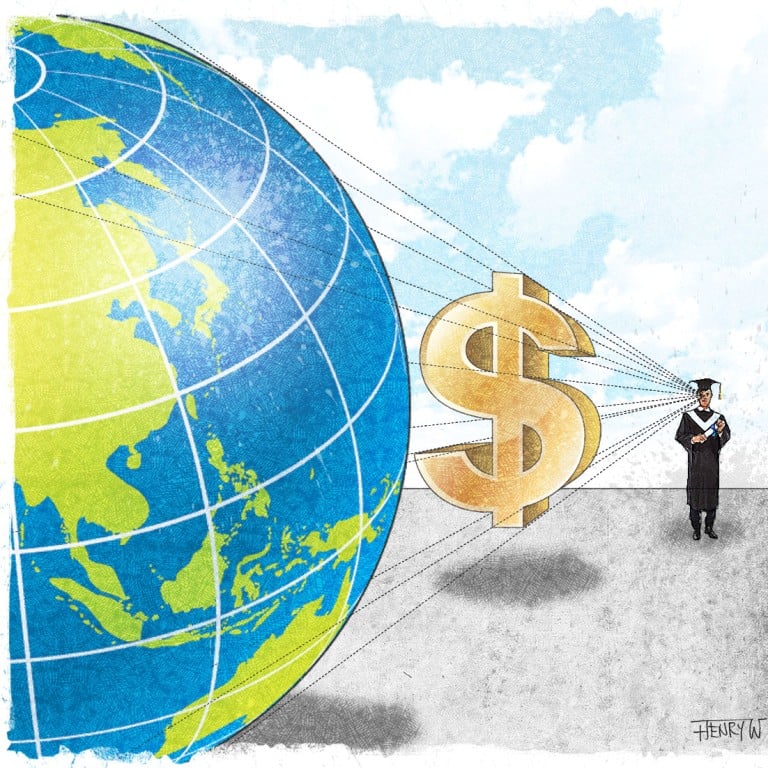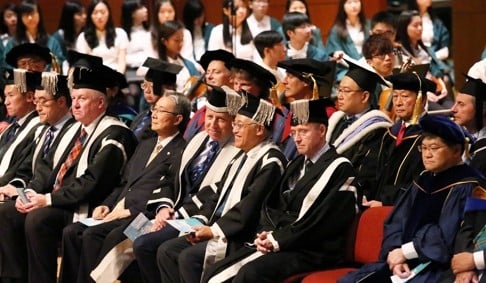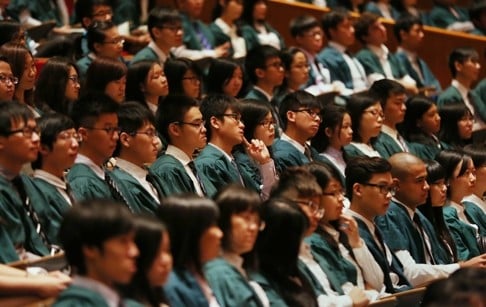
What is the purpose of a university education?
Sun Kwok says it isn’t just about enhancing one’s career prospects. At its best, a university should broaden students’ minds and horizons, allowing then to discern connections and analyse problems successfully, thus empowering them to change the world

In the past, we emphasised computational techniques and demanded that our students calculate answers quickly and accurately. But such technical tasks are being taken over by machines
The purpose of institutions of higher learning has evolved over the past millennium: from praising the glory of God, to self-fulfilment, to the search for truth. The 20th century saw the gradual introduction of agriculture and mining schools, teacher colleges and business schools to serve practical needs. In the 21st century, even the world’s leading universities use a mixed model. In addition to arts and science, most include professional disciplines such as architecture, business, engineering, law and medicine, where students train for professional qualifications to practise. I should note, however, that most professional programmes in North America require a four-year general degree as an entrance requirement.

Our world is changing quickly. We cannot expect the material we learn in a professional discipline to remain relevant for the rest of our career. Just look at the hi-tech industry: most of the technical skills needed today were not part of engineering school curriculums a few years ago. Technology and artificial intelligence are also rapidly making certain routine human enterprises obsolete. A successful university education must therefore provide students with fundamental skills and help them learn on their own and adapt to evolving circumstances.
READ MORE: A university degree in Hong Kong is no longer worth what it once was
What are these fundamentals? Language skills, including comprehension, expression and communication, will always be needed. Quantitative skills, such as the ability to analyse a problem, see hidden patterns, identify relevant variables and formulate solutions, are crucial to many jobs in society.
In the past, we emphasised computational techniques and demanded that our students calculate answers quickly and accurately. But such technical tasks are being taken over by machines.
I took four years of mathematics in university. But after I obtained my PhD, I never performed an integration, inverted a matrix, found the root of a non-linear equation or derived solutions to a differential equation by hand. If I need to perform these tasks, I use a calculator or computer. Possessing such technical abilities is far less important than my ability to know what kind of mathematics to apply and how to formulate equations to solve a real-life problem.

A good university education should train a student as a person, to broaden their mind and horizons, to allow them to see the relationships of apparently disparate phenomena, to acquire knowledge independently and to develop the confidence to challenge authority or dogma. These are the qualities that will make them leaders of the future. Such training requires a very different set-up from the current discipline-specific, narrowly focused subject learning that was popular in the old days of the British empire or the Soviet Union.
At the University of Hong Kong, we have taken the first steps in this direction. All incoming students in science are required to take one year of science foundation courses. In the first course in quantitative reasoning, they are introduced to the many branches of modern maths. Instead of computation, they are exposed to examples of real-life problems and shown how different kinds of mathematics can solve these problems. In the second course, instead of taking separate physics, chemistry and biology courses, they learn science in an integrated manner and are shown how nature, from the smallest atoms, to living cells, to the earth and the universe, are connected by principles of physics, chemistry and biology. They are encouraged to see our world in a broad context with a global view.

A student trained with a narrow and specific skill is a tool, to be manipulated and used by others
The common core requirement introduced by the university in 2010 also furthers these new educational objectives. Many of the courses are interdisciplinary and multidisciplinary. The goals are to elevate the visions of students from a narrow perspective to a higher platform where they can see a bigger picture. My colleague, Dr Patrick T.W. Ng, designed a course called “Hidden Order in Daily Life” to show that maths is everywhere in our lives, even in social and political structures. Dr Tim Wotherspoon created a course called “Simplifying Complexity” to illustrate that order exists in the most complex phenomena, including social networks and ecology. I developed a common core course called “Our Place in the Universe” in which I used 5,000 years of the history of astronomy to illustrate how scientific progress led to changes in philosophy, religion and social structure.

READ MORE: Blind pursuit of university degrees taking Hong Kong down the wrong path
Recently, I have seen calls by community leaders for students to focus on their subject studies. I take exception to this view. A student trained with a narrow and specific skill is a tool, to be manipulated and used by others. A broadly educated student is empowered to change the world, make a difference to an enterprise or an organisation, and at the same time lead a personally intellectually fulfilling life. What kind of education do you want you and your children to have?
Sun Kwok is dean of science at the University of Hong Kong and author of many books, including the bestselling “Cosmic Butterflies" and "Stardust: the cosmic seeds of life”

